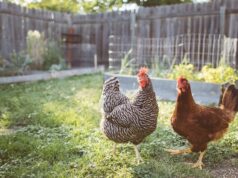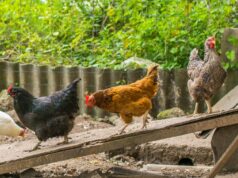Many chicken owners find themselves puzzled by the question, Why arent my chickens laying eggs? when their usually productive layers suddenly decline in egg production. Whether youre a seasoned poultry farmer or a backyard enthusiast, understanding the possible reasons behind this drop can help you resolve the issue effectively and ensure that your chickens remain healthy and happy.

Physical Health of Chickens
A crucial factor in egg production is the physical health of your chickens. Healthy hens are more likely to lay eggs consistently. Its essential to regularly check your flock for signs of illness or parasites.
Nutrition and Diet
A well-balanced diet is vital for egg production. Chickens require a diet rich in calcium, proteins, and other nutrients to lay eggs consistently. Calcium, in particular, is crucial because it strengthens the shells of the eggs. For more information on ensuring a good diet, consider adding supplements to their feed.
Parasites and Diseases
Parasites like lice and mites can sap the energy of your chickens, leading to a decline in egg production. Regularly inspect your flock for signs of infestations. Disease can also be a cause, so it’s crucial to have a health management plan in place to regularly vaccinate and deworm your chickens.
The Impact of Environment
The environment in which your chickens live plays a significant role in their egg-laying patterns.
Seasonal Changes
Chickens can be sensitive to changes in weather and daylight when it comes to laying eggs. Most chickens reduce their egg production during the winter months due to shorter daylight hours. If you want to encourage more egg laying in less than ideal conditions, consider the advice on laying in winter.
Lighting and Housing
Providing adequate light in chicken coops, especially in the darker months, can boost egg production. Make sure your hens have a consistent amount of light each day, and ensure their housing is comfortable and safe from predators.
The Life Cycle Factor
Understanding that chickens production can naturally decrease with age is vital. Young hens in prime laying age will always outperform older birds in terms of egg production.
Molting
When chickens molt, their energy shifts from laying to producing new feathers, leading to a temporary halt in egg production. Its a natural process that typically happens once a year.
Age Considerations
Chickens usually lay the most eggs during their first few years of laying. As they get older, their production naturally declines.
Breeds and Their Laying Rhythm
Not all chicken breeds lay at the same frequency. Some breeds are known as excellent layers, while others may only lay sporadically. Information on breed characteristics can be helpful in understanding what to expect from your flock.
Choosing the Right Breed
When starting a flock, choosing the right breed based on their egg-laying abilities can set good expectations. Some breeds are known for laying beautiful eggs, as outlined in egg color by breed.
Stress Factors
Stress is a significant factor that can influence egg production in chickens. Anything from a new coop mate to a predator encounter can stress chickens, leading to a stop in laying.
Changes in Flock Dynamics
Adding new chickens to your flock or losing a familiar one can cause stress. Its crucial to manage such changes carefully to minimize disruptions.
Predator Threats
A predator in the area can put chickens on high alert, affecting their egg production. Ensuring your chickens are secure will help them feel comfortable enough to continue laying.
For additional guidance on maintaining a healthy, high-producing flock, external resources such as Good Housekeeping’s guide on egg nutrition provide valuable information on the nutritional benefits of eggs to further underline the importance of maintaining a healthy flock.

FAQs
1. What should I feed my chickens to promote egg production?
Ensure a diet rich in calcium, protein, and other vital nutrients. Consider supplements if necessary, to keep your flock healthy.
2. How can I get my chickens to lay during the winter?
Providing supplemental light and managing their diet can help your chickens lay throughout the winter months.
3. Do all chicken breeds lay eggs consistently?
No, different breeds have different laying patterns. Selecting the right breed is key to meeting your egg production expectations.
This article contains affiliate links. We may earn a commission at no extra cost to you.











